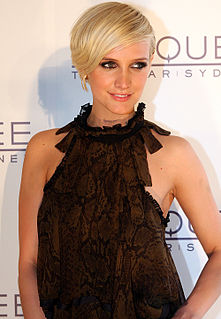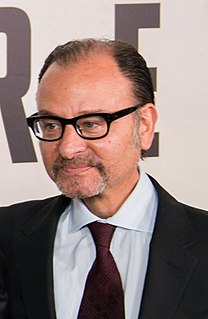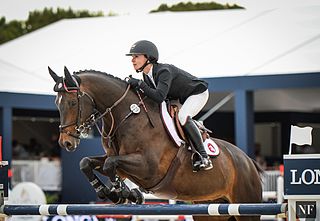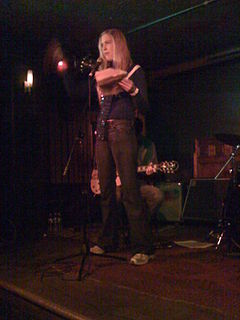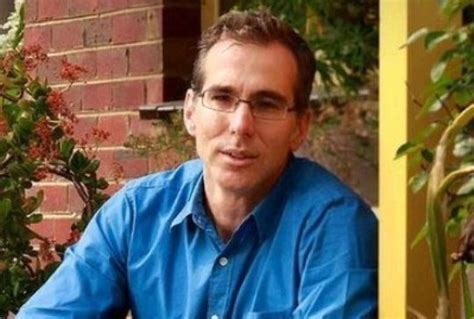A Quote by Ray Bradbury
The only good writing is intuitive writing. It would be a big bore if you knew where it was going. It has to be exciting, instantaneous and it has to be a surprise. Then it all comes blurting out and it’s beautiful. I’ve had a sign by my typewriter for 25 years now which reads, ‘DON’T THINK!’
Related Quotes
And I felt more like me than I ever had, as if the years I'd lived so far had formed layers of skin and muscle over myself that others saw as me when the real one had been underneath all along, and I knew writing- even writing badly- had peeled away those layers, and I knew then that if I wanted to stay awake and alive, if I wanted to stay me, I would have to keep writing.
It was only after two years' work that it occurred to me that I was a writer. I had no particular expectation that the novel would ever be published, because it was sort of a mess. It was only when I found myself writing things I didn't realise I knew that I said, 'I'm a writer now.' The novel had become an incentive to deeper thinking. That's really what writing is—an intense form of thought.
I knew that people were going to talk about it, I knew it was embarrassing, and I knew it was a big deal. But did I think that it was going to be this thing that followed me for, you know, the next years to come? I guarantee you, 25 years from now, I'll be known as the girl that lip synced on 'SNL.' But, you know, it was a weird thing. Not fun.
Once I hit 25, I realized I had to do more than just be an actor. I love acting, but there's something that makes it difficult to just be a man, a grownup. Not to take away from any actors, but I knew I wasn't going to be Tom Cruise. I knew I was a character actor, which is great and I'm proud of it. But I knew that I wanted to do more. I started producing and directing and writing and stuff for the theater, and then that grew out of hand and I sort of lost my control. I've always loved the process of filmmaking. Now I'm much more into producing docs, but I want to direct features.
I had to take a big risk by writing my young adult book series 'The A Circuit' and putting myself out there in that way. I don't consider myself a good writer, so I had to rely on a co-writer. Still, I knew that people would judge me and my writing. I am really proud of the way the series turned out.
I would rather not write if I'm depressed, or am going through a breakup, or I've had some disappointment, or I'm having a family issue. You don't want to just put out an open wound. Sometimes that just isn't even really good writing. Good writing should be good writing and storytelling and not just therapy or someone's personal journal.
I think the success of every novel - if it's a novel of action - depends on the high spots. The thing to do is to say to yourself, 'Which are my big scenes?' and then get every drop of juice out of them. The principle I always go on in writing a novel is to think of the characters in terms of actors in a play. I say to myself, if a big name were playing this part, and if he found that after a strong first act he had practically nothing to do in the second act, he would walk out. Now, then, can I twist the story so as to give him plenty to do all the way through?
I don't think I would have been a good architect. Really, I have thought about this from time to time, and I might have wound up like my father, who never did find that which he could devote his life to. He sort of drifted from job to job. He was a traveling salesman, he was a bookkeeper, he was an office manager, he was here, there, there. And however enthusiastic he was at the beginning, his job would bore him. If I hadn't had the writing, I think I might have replicated what he was doing, which would not have been good.



